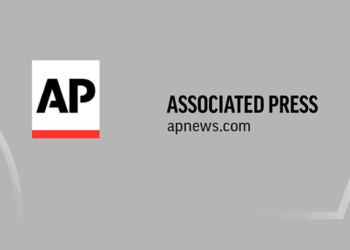It’s heat wave season in Europe.
From late June to early this month, temperatures across the continent soared past 100 degrees Fahrenheit, particularly afflicting Spain and France. As wildfires flared and drought loomed, emergency measures kicked in. Nuclear reactors shut down, construction workers were told to stay home, schools canceled whole days of classes, and the Eiffel Tower was closed to visitors. Such stopgaps, though, could only limit the damage. By initial estimates, the 10-day heat wave left some 2,300 dead.
These emergencies are going to keep happening. Not only are we rushing toward devastating global warming but Europe is also heating faster than other regions. This was a time to recognize the need for more resolute action to tackle the root causes of extreme heat and work harder to cut emissions. Europe’s politicians had the chance to prove what they often claim: that the European Union is a world leader on the green transition.
They didn’t take it, mustering only platitudes about staying safe. Instead, Europe’s leaders are pulling back from climate measures they agreed to in years past. Faced with economic challenges and geopolitical mayhem, an emboldened right-wing chorus is claiming that the European Union is doing too much already. Disastrously, European leaders are caving in to these voices. They are reining in their ambitions to green the economy — and delivering their citizens to a terrifyingly hot future.
It’s a real change of mood from just a few years ago. Picked in 2019 as president of the European Commission, the bloc’s executive arm, Ursula von der Leyen promised to make the European Green Deal the centerpiece of her agenda. The plan centered on some 1 trillion euros in public and private investment, tied to achieving net zero emissions by 2050. After the pandemic, this became the leading focus for investment funded by the bloc’s collective borrowing. The green transition was not an economic sacrifice, officials claimed, but a key means of safeguarding the continent’s future.
Yet the political coalition on which that deal rested, made up of the E.U.’s traditional center-left and center-right parties, no longer looks so stable. After parliamentary elections last year, it is increasingly threatened by a potential alternative right-wing alliance, made up of a motley array of fiscal hawks, conservatives and hard-right nationalists. These forces are divided on some issues and have no formal agreement. But voting together on some measures, they have shown that they constitute a majority able to block legislation. One nationalist lawmaker is even set to be Parliament’s lead negotiator on an important climate bill.
Hard-right forces have long railed against the Green Deal. Prime Minister Viktor Orban of Hungary was quick to dismiss it as a “utopian fantasy”; the far-right Vox, a contender to be part of Spain’s next government, demands its wholesale abandonment. In Rome, Giorgia Meloni’s Brothers of Italy takes a more nuanced line, speaking a folksy language of protecting nature while resisting plans for industrial adaptation. In her view, such a program would create a “desert” in which “there is nothing green.”
In truth, calls to ditch the Green Deal outright have little purchase. There is too much invested in it. Yet the combined forces of right-wing ideologues, corporate lobbyists and backsliding governments are hobbling several decisive measures. In June, Italy torpedoed long-prepared E.U. legislation on “greenwashing,” which would have forced businesses to prove claims that their products are eco-friendly. Lawmakers accused Ms. von der Leyen, a Christian Democrat, of siding with the hard right.
Even existing agreements are open to dispute, as with the union’s pledge to phase out internal-combustion engines in new cars by 2035. Disliked by many car-reliant Europeans, the policy has been especially targeted by the auto industry. In Germany, auto companies are pressuring Chancellor Friedrich Merz to honor his pre-election promise to halt the phaseout. Bruno Retailleau, France’s interior minister and recently elected president of the right-wing Republicans party, agrees. This month, he co-wrote a column deriding the plan as unviable.
For all that, Europe remains committed to reaching net zero by 2050, in line with the Paris Agreement signed in 2015. Indeed, the union has in recent years made more headway in this direction than other major economies. The problem is that the steps to get there seem ever more precarious. In June it was revealed that France had pushed for a delay in setting the E.U.’s 2040 climate targets. While maintaining the overall goal of reducing emissions 90 percent by 2040, President Emmanuel Macron’s government secured loopholes that critics say gut the plan.
Europeans are clearly losing their will to set a good example. In a legislative proposal finalized this month, officials suggested that 3 percent of emissions reductions by 2036 can be purchased from non-European states. Europe has long fancied itself as a normative power whose example motivates virtuous behavior by others. Today the relationship is more transactional. Just as the union increasingly relies on autocratic North African states to serve as its outsourced border police, it now wants to hire other countries to reduce emissions on its behalf.
Several European leaders have invoked President Trump’s return to office as a reason for the bloc to play a bolder, more independent role on the global stage. After Mr. Trump signed an executive order pulling America out of the Paris Agreement, Ms. von der Leyen insisted that the climate pact “continues to be the best hope for all humanity” and that Europe would “stay the course.” Some European leaders have even called for more collaboration with China on climate goals, though a formal agreement has proved hard to complete.
Yet despair at American inaction seems to be having a different effect, causing Europeans to question whether their emissions-cutting efforts are worthwhile. This feeling is heightened by the threat of U.S. tariffs, which — when they come — have the potential to devastate European industries. What’s more, Mr. Trump’s pressure for European NATO members to raise defense spending to 5 percent of gross domestic product is changing European priorities. Even hard-right forces who cavil at collective borrowing for the green transition may support it for defense spending.
Remilitarization has its own problems and dilemmas. Yet it also marks a major departure from the union’s climate focus, not least given the vast emissions attached to the weapons industry itself. In recent weeks, the commission announced that some of the E.U.’s unspent post-pandemic funds, earlier earmarked for the green transition, may now instead be used for defense. Poland has reportedly received permission to redirect over 6 billion euros to infrastructure, cybersecurity, and steel and arms production.
There’s an irony here. Where the invasion of Ukraine forced Europe to start weaning itself off Russian gas, speeding the turn toward renewables, today’s many insecurities risk doing the opposite. The continent’s leaders, facing threats within and without, are backing away from their own green agenda. Europeans are left feeling the heat.
David Broder (@broderly) is the author, most recently, of “Mussolini’s Grandchildren: Fascism in Contemporary Italy.”
The Times is committed to publishing a diversity of letters to the editor. We’d like to hear what you think about this or any of our articles. Here are some tips. And here’s our email: [email protected].
Follow the New York Times Opinion section on Facebook, Instagram, TikTok, Bluesky, WhatsApp and Threads.
The post Europe’s Leaders Are Doing Something Disastrous appeared first on New York Times.




